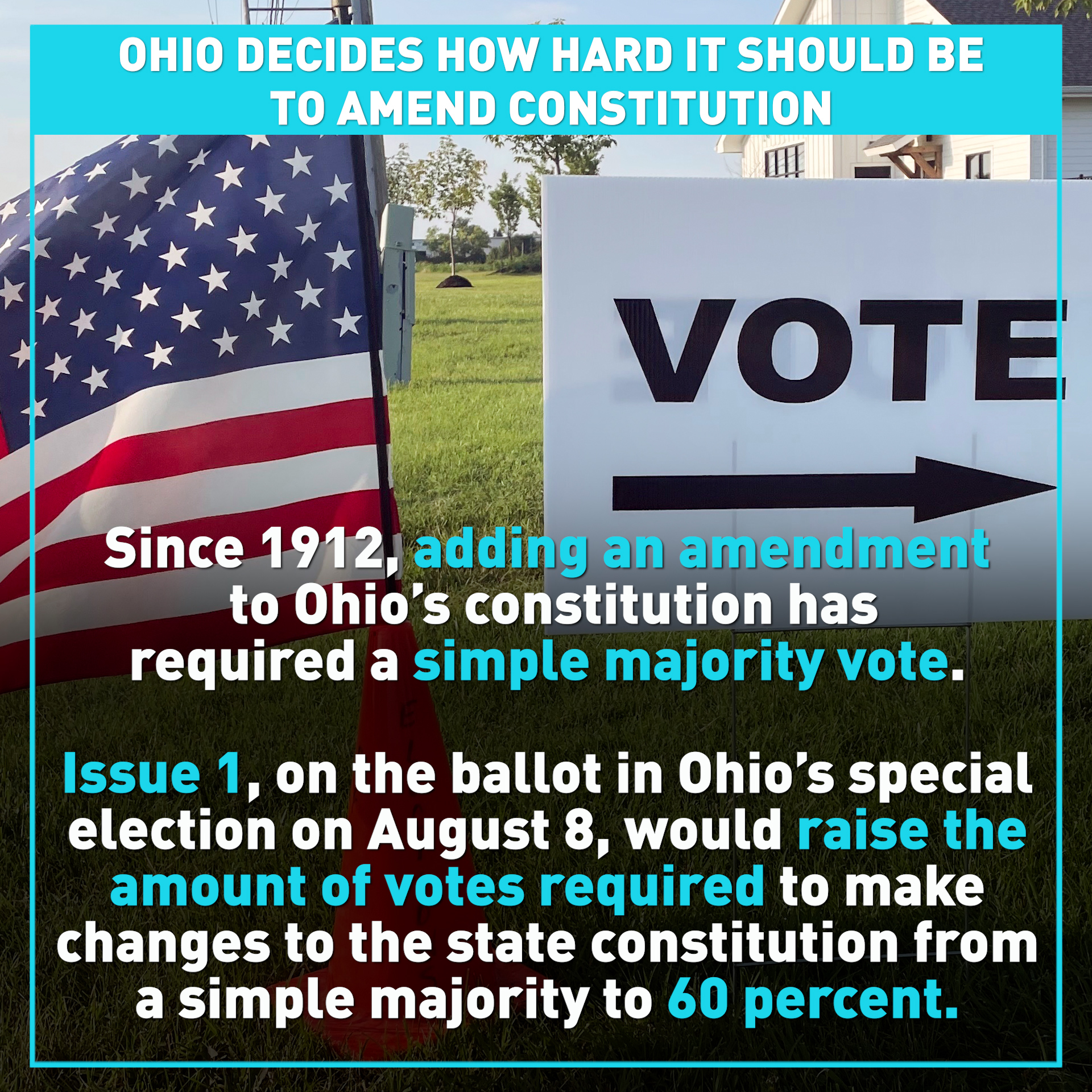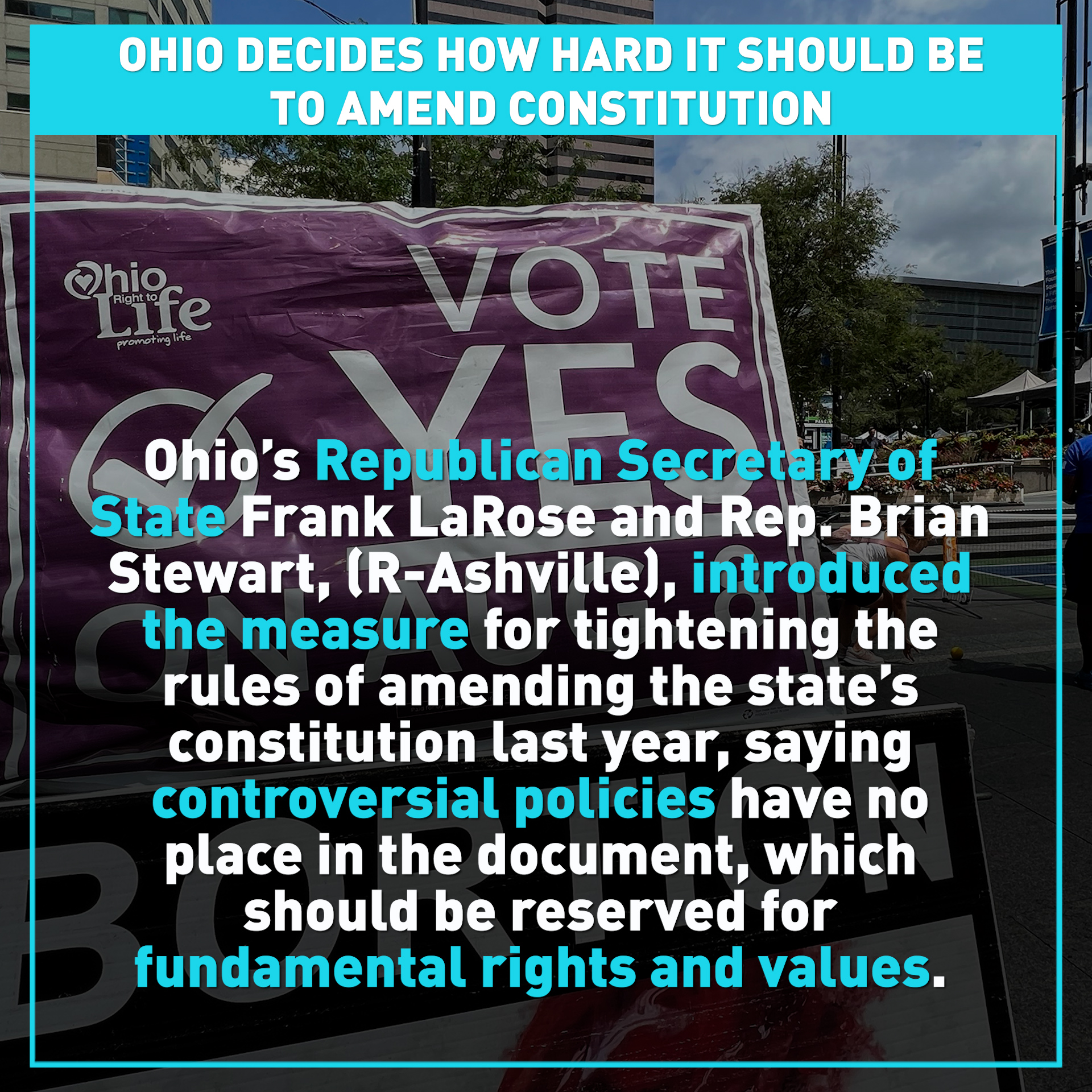Voters in the U.S. state of Ohio headed off to the polls on Tuesday, August 8, to complete voting on a referendum known as Issue 1 that, should it pass, will raise the threshold for making changes to the state's constitution.
The results of the vote on Issue 1 may also affect by proxy the right to an abortion in the state. Outside special interest groups are following Ohio’s special election closely.

Click arrows to view gallery
Click arrows to view gallery
Since 1912, adding an amendment to Ohio’s constitution has required a simple majority.
If Issue 1 passes on Tuesday in Ohio’s special election, it will raise the votes necessary to make changes to the state constitution from a simple majority to 60 percent. Reproductive rights advocates say that will make it much more difficult to enshrine the right to an abortion in Ohio.
Supporters of Issue 1 say a ‘yes’ vote will provide 'defense against out-of-state meddling.' Opponents say a ‘yes’ vote would give 'special interests the winning advantage.'
Both sides are largely funded by such donors.
The coalition supporting the measure, called Protect Our Constitution, is funded almost entirely by billionaire Illinois business owner Richard Uihlein.
The movement against Issue 1, called One Person One Vote, secured nearly 85% of its funding from outside Ohio. Several of the largest donations were from groups that aren’t legally obligated to disclose their donors, including the Sixteen Thirty Fund.

Click arrows to view gallery
Click arrows to view gallery
Ohio’s Republican Secretary of State Frank LaRose and Rep. Brian Stewart, (R-Ashville), introduced the measure for tightening the rules for amending the state’s constitution last year, saying controversial policies have no place in the document, which should be reserved for fundamental rights and values.
Opponents of the measure say Issue 1 would limit the rights of citizens to bring any issue to the ballot, and call the measure a ‘power grab’ by the state’s Republican leaders.
It is becoming more common in the U.S. for out-of-state money to fund state-level campaigns.
Campaigns for and against polarizing issues in the U.S. like abortion, gender-affirming care, and critical race theory, can garner large influxes of outside funding.
The polarization can also garner widespread misinformation campaigns, like mailers containing false information surrounding Issue 1 that circulated in Ohio that were traced back to a special interest group address in Illinois.
Issue 1 would also require Ohio citizens who want to get any amendment on the ballot to collect signatures from five percent of eligible voters in all of the state’s 88 counties, rather than the current 44.
Issue 1 also eliminates a 10-day period that allows citizens to replace any signatures the secretary of state’s office finds questionable.
For more, check out our exclusive content on CGTN Now and subscribe to our weekly newsletter, The China Report.